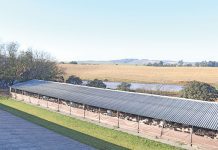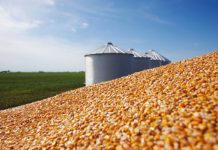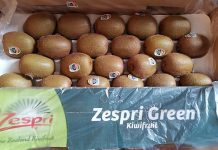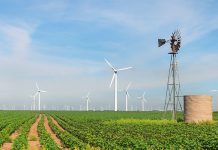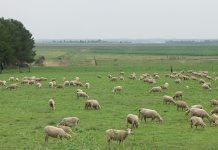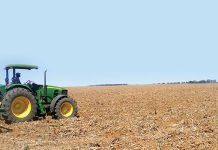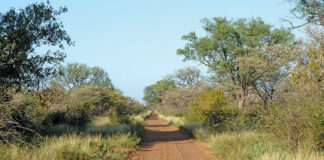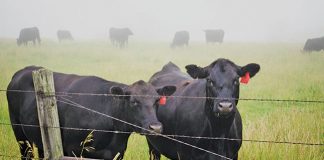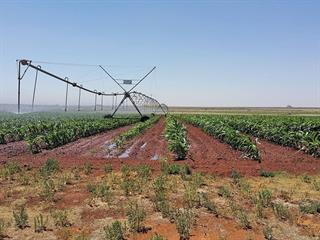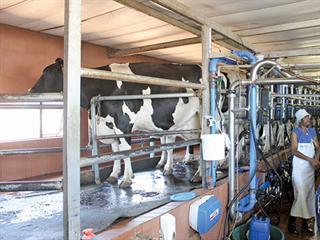
The word ‘sustainability’ is much bandied about these days, yet little attempt is made to define it properly. Management consultant Peter Hughes made this point well in ‘Managing for profit’ (FW, 29 November).
Recently, Netherlands-based international financial services provider Rabobank brought together 50 farmers from 18 countries and six continents to discuss the future of farming. During the debate, participants ended up defining sustainability and stressing its importance.
First, some facts…
- Since the 1960s, agriculture has managed to provide food at lower real prices to a population that has increased from three billion to seven billion. Per capita, global food supply has risen by 30%. However, this has been accompanied by environmental problems. Livestock production accounts for 18% of human-induced greenhouse gas emissions. Primary agriculture is said to withdraw 70% of the world’s fresh water, and, according to the World Wide Fund for Nature (WWF), spoils at least half of it.
- Globally, more than a third of food produced is lost or wasted along the chain from producer to consumer – enough to feed two billion people. Every year, consumers in rich countries waste almost as much food (222 million tons) as the net food production of Sub-Saharan Africa (230 million tons).
- Globally, biodiversity has declined by about 30% since 1970 and by 60% in the tropics. The demand on natural resources has doubled since then.
- Currently, we are using the equivalent of 1,5 Earths to support our activities, thus exceeding the world’s capacity to regenerate by 50%. If we continue like this, by 2030 even the equivalent of two planet Earths will not be enough.
Producing more with less
“The Earth, for sure, will not grow bigger. We have to increase production per hectare with fewer inputs and emissions,” says Aalt Dijkhuizen of Wageningen University in the Netherlands. Sustainability means working towards higher productivity and efficiency; in other words, producing more with less. Large variations exist in farm productivity. Worldwide, productivity of farm animals is 30% to 40% below their genetic potential.
Most crops are believed to perform at 50% below optimum. The world average grain yield is about 3t/ ha, but yields range from over 6t/ ha in the USA to about 1t/ha in Nigeria and Kazakhstan. According to the WWF, the world’s best-performing farmers are about 100 times better than their least productive colleagues. And the low performers are responsible for 50% of environmental impact through agriculture.
To produce ‘more with less’, then, will require enormous effort, but significant progress has been made. Dairy farm carbon emissions, for example, have been reduced by 63% in the past 60 years through production efficiencies and nutrition management, while energy use in dairy processing has declined by 25%. Today’s dairy production requires 10% of the land, 23% of the feed and 35% of the water used per kilogram of milk of dairy production in the 1940s.
And the carbon footprint/ kg of today’s consumed pork and poultry has declined by 31% and 43% respectively from the 1970s. Again, this has mainly been due to production efficiencies. The overall increase in consumption of these products in the same period has been more than compensated for by this per unit carbon output reduction.
Room for improvement
“A ceiling has not been reached, not even for the currently best-performing farmers. Using technologies such as genomics, precision agriculture and bio-based technologies, new breakthroughs will be achieved,” says Dijkhuizen. With genomics, the most desirable traits of plants or animals can be selected without gene manipulation and without long practical trials, thus providing accelerated and more effective breeding progress.
Precision agriculture utilises the differences between various crops and animals rather than trying to eliminate them. It focuses on taking the right action at the right time and in the right place. Instead of providing one blanket treatment for the entire land, it optimises the amount and type of fertiliser, herbicide or water, for example, for each square metre of the land. In this way, areas that are not producing well can receive more treatment than those that are flourishing, significantly enhancing overall yield while reducing inputs.
The need to act now
The message is clear: “We cannot feed today’s world with yesterday’s agriculture,” says scientist and writer Prof Louise Fresco of the University of Amsterdam. A problem exists, however, in the lack of consensus. Sustainability criteria often conflict with each other, scientists do not always agree on best practices, and consumers send confusing messages. But farmers cannot wait.
“They have to take decisions for the long run,” explains one farmer at the Rabobank workshop. “With investment horizons and crop rotation schemes stretching over several years, sometimes decades, farmers feed the future. When opinions change, they cannot simply take back a crop land, an animal herd, a fishpond, a greenhouse or a farm building. Farmers sow today, to harvest far beyond tomorrow. We have to act now.”
Ricardo Pohl, a Chilean dairy farmer, puts it well: “The definition of sustainability knows various senses, but there is only one that matters: common sense. My freedom ends where I affect the freedom of someone else.”
Adapted from The Future of Farming, produced by the Rabobank Group.

